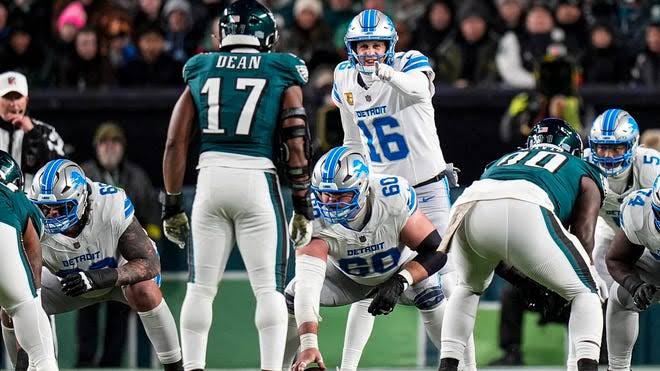
The Detroit Lions have spent the past few seasons building a reputation as one of the toughest, most physical teams in the NFL, with their offensive line often serving as the engine behind that identity. But as the calendar moves deeper into the season, the frustration is impossible to ignore: the Lions are running out of time to fix the growing inconsistencies plaguing their offensive line. What was once considered the team’s most stable and dominant position group has suddenly turned into a weekly puzzle with missing pieces, fluctuating performance, and mounting pressure.
At the center of the issue is the lack of continuity. Injuries, rotations, and unexpected absences have disrupted the chemistry that once made Detroit’s O-line one of the most cohesive in football. Offensive lines thrive on repetition, communication, and trust—three ingredients that have been difficult for the Lions to maintain. Each week seems to bring a new combination of linemen, and each change creates new problems in protection, run blocking, and pre-snap adjustments.
The impact has been felt everywhere. Jared Goff has faced more pressure than he’s used to, leading to disrupted timing and forced throws. The run game, which was once the team’s heartbeat, has seen too many plays blown up in the backfield before David Montgomery or Jahmyr Gibbs even have a chance to get downhill. Even the scheme itself has felt limited at times, with play-caller Ben Johnson having to adjust his designs to mask protection issues instead of fully unleashing the creativity that has made Detroit’s offense one of the most dangerous in the league.
The Lions know they have the talent. Penei Sewell continues to play at an elite level. Frank Ragnow remains one of the best centers in football. Taylor Decker is one of the most reliable left tackles in the conference when healthy. But football doesn’t reward isolated excellence—the unit must function as a synchronized whole, and right now, that rhythm is missing.
Time is becoming the Lions’ biggest enemy. With playoff positioning tightening and divisional opponents gaining momentum, Detroit can’t afford to keep letting their offensive line fluctuate between dominant drives and head-scratching breakdowns. Every game from here on out carries consequences, and an unreliable line is the fastest way for a contender to slide backward.
There’s also the psychological factor. Offensive lines thrive on confidence—confidence in assignments, in adjustments, and in the man lined up next to you. When that confidence wavers, even simple tasks grow harder. The Lions’ coaching staff has spent the past weeks trying to declutter the players’ minds, simplify certain protections, and get back to the physical identity that once defined them. But simplification alone won’t solve the deeper issue: the need for consistent execution.
Detroit’s goals haven’t changed. They still believe they can compete with the best in the NFC, push for a deep postseason run, and prove that last season’s success was no anomaly. But those ambitions will fade quickly if the offensive line doesn’t regain its strength and stability.
The clock is ticking. The Lions don’t need perfection—they just need consistency. And unless they solve their offensive line issues soon, the window they’ve worked so hard to build may begin to close faster than expected.
Be the first to comment